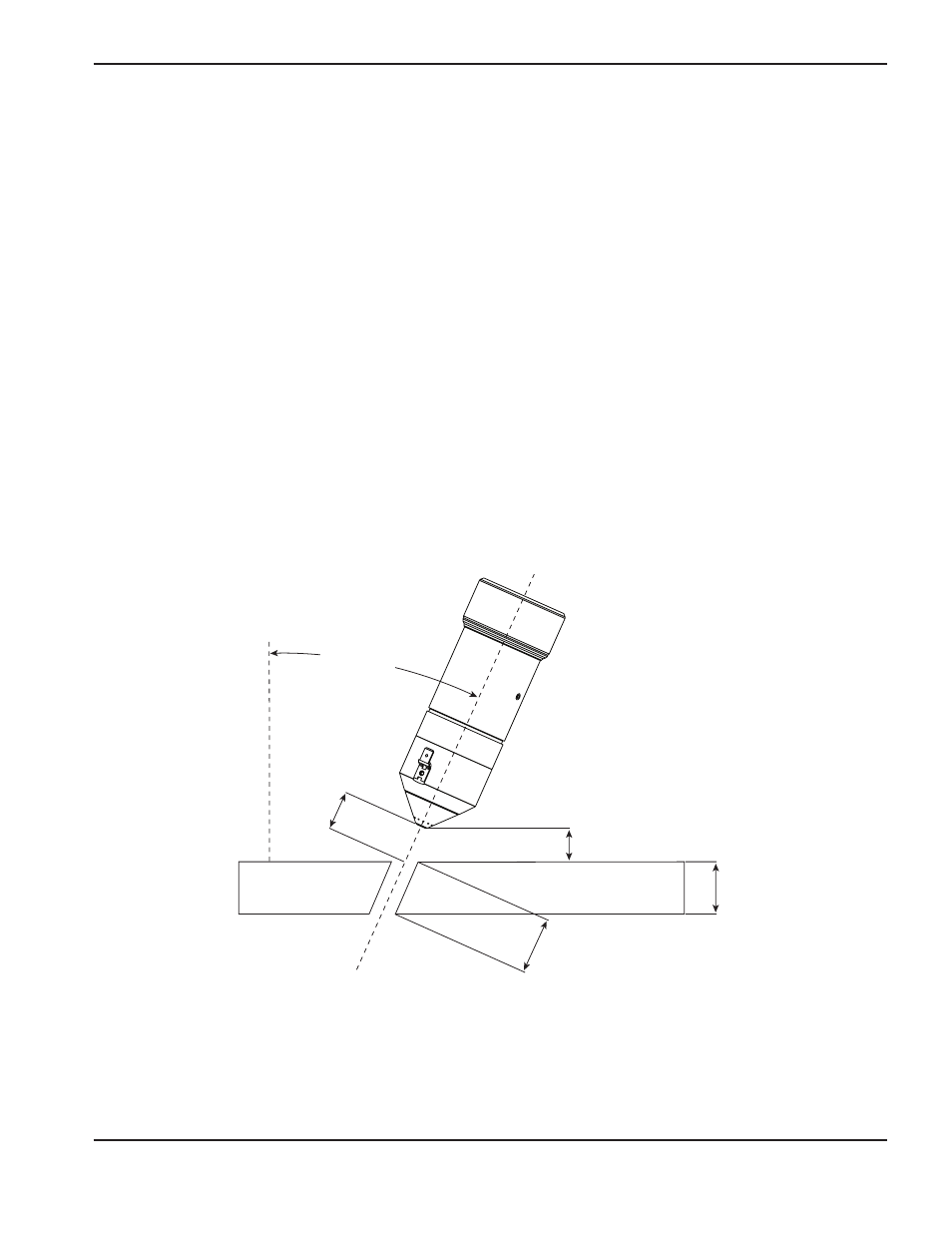Bevel cutting definitions – Hypertherm HPR260 Manual Gas Preventive Maintenance Program Rev.5 User Manual
Page 299

APPENDIX D – BEVEL CUTTING
HPR260 Auto Gas
Instruction Manual
d-3
Bevel cutting definitions
Bevel angle
The angle between the center line of the torch and a line that is perpendicular to the
workpiece. If the torch is perpendicular to the workpiece, the bevel angle is zero. The
maximum bevel angle is 45°.
Nominal thickness
The vertical thickness of the workpiece.
Equivalent thickness
The length of the cut edge, or the distance the arc travels through the material while cutting.
Equivalent thickness is equal to the nominal thickness divided by the cosine of the bevel
angle. Equivalent thicknesses are listed in the cut chart.
Clearance
The vertical distance from the lowest point of the torch to the surface of the workpiece.
Torch-to-work distance
The linear distance from the center of the torch outlet to the workpiece surface along the
torch center-line. A range of torch-to-work distances are listed in the cut chart. The smallest
number is for a straight cut (bevel angle = 0°). The largest number is for a 45° bevel cut with
a clearance of 3 mm (0.120 in).
Arc voltage
The arc voltage setting is dependent on the bevel angle and the setup of the cutting system.
The arc voltage setting on one system may be different from a second system even if the
workpiece is the same thickness. The arc voltages for bevel cutting are not supplied in the
bevel cut charts.
Bevel angle
Torch-to-work
distance
Torch
center-line
Clearance
Nominal
thickness
Equivalent
thickness
0°